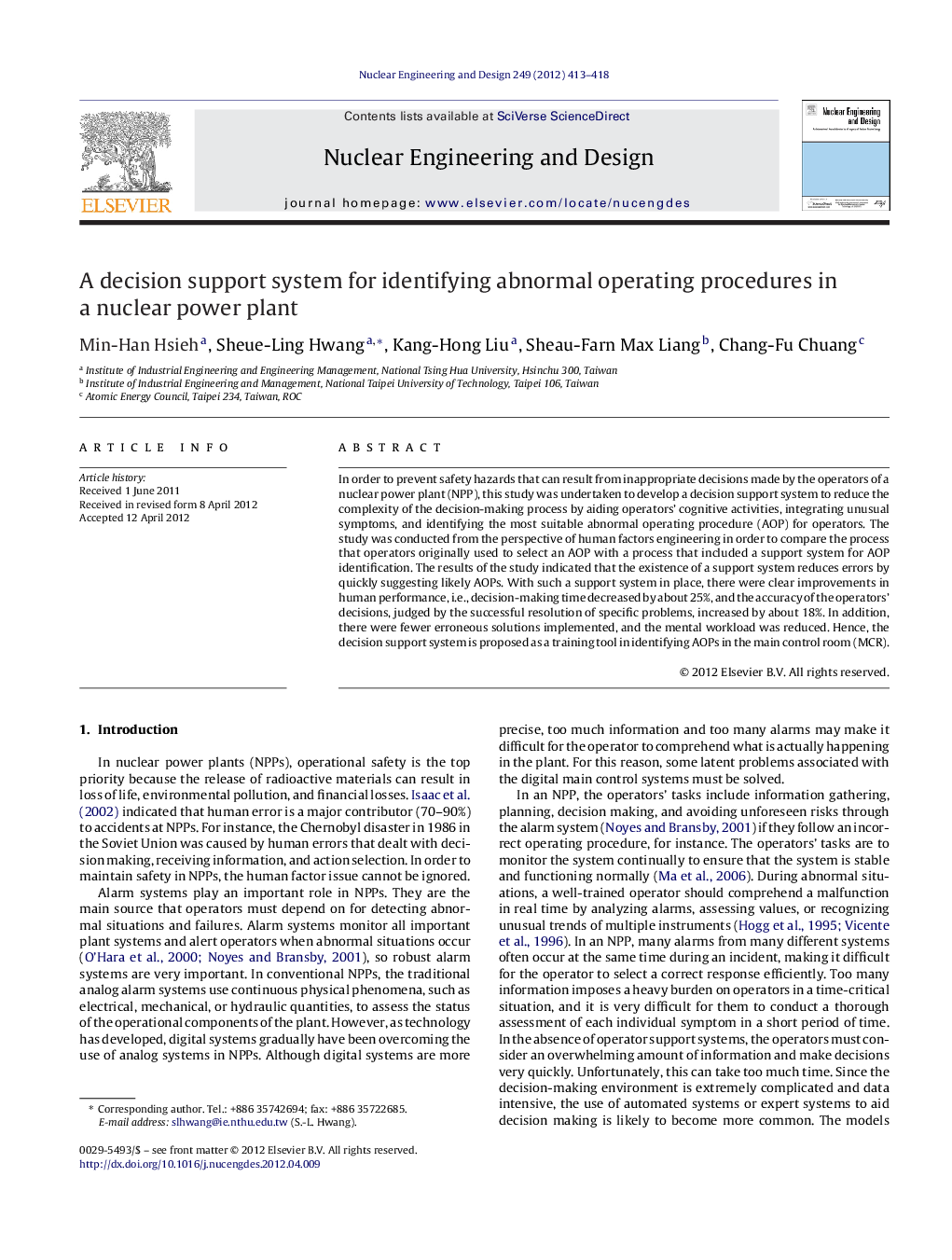| Article ID | Journal | Published Year | Pages | File Type |
|---|---|---|---|---|
| 297201 | Nuclear Engineering and Design | 2012 | 6 Pages |
In order to prevent safety hazards that can result from inappropriate decisions made by the operators of a nuclear power plant (NPP), this study was undertaken to develop a decision support system to reduce the complexity of the decision-making process by aiding operators’ cognitive activities, integrating unusual symptoms, and identifying the most suitable abnormal operating procedure (AOP) for operators. The study was conducted from the perspective of human factors engineering in order to compare the process that operators originally used to select an AOP with a process that included a support system for AOP identification. The results of the study indicated that the existence of a support system reduces errors by quickly suggesting likely AOPs. With such a support system in place, there were clear improvements in human performance, i.e., decision-making time decreased by about 25%, and the accuracy of the operators’ decisions, judged by the successful resolution of specific problems, increased by about 18%. In addition, there were fewer erroneous solutions implemented, and the mental workload was reduced. Hence, the decision support system is proposed as a training tool in identifying AOPs in the main control room (MCR).
► A decision support system has been constructed and verified. ► The operator's decision-making time was decreased by about 25%. ► The accuracy was increased by about 18%. ► The system prevents overlooking important information. ► Fewer erroneous solutions were implemented, and the mental workload was reduced.
